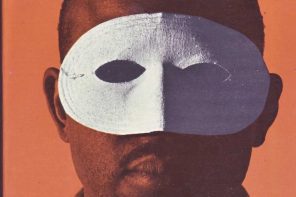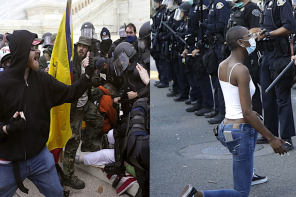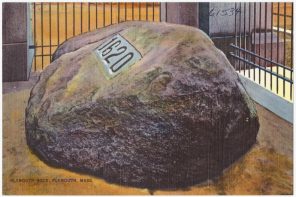Nearly a year has passed since Freddie Gray’s murder by Baltimore police officers ignited outcries that roiled my city for weeks. Though the camera crews have moved on and the curfew has been lifted, the protests kicked up a dust storm that has yet to settle. Failures—long-ignored—were thrown into sharp relief, and a beleaguered Charm City was forced to acknowledge its demons. The question of food justice quickly came to the fore during and after the protests when many of the corner stores—the only food source for many black residents—were damaged.
When our own mayor called people fed up with being ignored and shut out of the ever-lingering promise of a better Baltimore “thugs,” “We all we got” came to be the mantra.
According to a recent joint report from the city of Baltimore and the Johns Hopkins Center for a Livable Future, one in four Baltimore residents live in so-called “food deserts,” or areas in which it is difficult for those living in poverty to find affordable or good-quality fresh food. This food access inequality is born of the housing segregation actively perpetrated in Baltimore for decades and the sloughing away of heavy manufacturing jobs in the last generation. Children are disproportionately affected, and the health risks created fit into a scheme that includes flagging schools, violent crime and the attendant apartheid policing that sets up a bleak future for the city’s youngest residents.
New #bmorefoodmap shows lack of access to healthy food for Baltimore's black communities http://t.co/pn75y43Pvo pic.twitter.com/W1j3sKuv2l
— BASE (@basebaltimore) June 19, 2015
In the wake of the rioting—with city schools closed and kids without lunches—it was again made clear that the public and private sectors often do not have black lives and their well-being at heart. With thousands of children going without the free or reduced lunches they depended on for a midday meal, it was a handful of churches and members of the community that would feed them breakfast and lunch. Meanwhile, national chain luxe-grocer Whole Foods would instead provide food for the National Guardsmen deployed by Republican Gov. Larry Hogan to “maintain order.”
People of color in cities such as Baltimore or Flint cannot count on governments to improve the lot of their most vulnerable citizens. When our own mayor called people fed up with being ignored and shut out of the ever-lingering promise of a better Baltimore “thugs,” “We all we got” came to be the mantra.
After that flashpoint of what was internally dubbed the “Baltimore Uprising,” the city saw an appreciable uptick in social and political engagement. Many leaders in the city’s churches were faced with the challenge of providing members of their communities with physical as well as spiritual food.
There has been a feeling that the church needs to be a genuine driver of change—not another server of empty rhetoric, and definitely not another actor complicit in a white supremacist system.
Rev. Dr. Heber Brown’s Black Church Food Security Network is a standout example of the church stepping in where the government and other institutions have failed. Rev. Brown, who heads Pleasant Hope Baptist Church in Baltimore, linked black farmers and urban growers in Maryland with local black churches to “pipeline fresh food into some of Baltimore’s most destitute communities.” Espousing a philosophy reminiscent of Marcus Garvey, BCFSN believes that only by creating our own food systems, can black Americans “define their own reality and name their own solutions.” The model has been successful enough that it has garnered the attention of black churches in other cities like Chicago and Dallas.
There has been a feeling that the church needs to be a genuine driver of change—not another server of empty rhetoric, and definitely not another actor complicit in a white supremacist system. (Our politicians have already done a fine job of that.) In this void, Black Lives Matter has evolved as a movement free of monoliths—as RD’s interview with #BlackLivesMatter co-founder Patrisse Cullors shows. Even those at the “forefront” such as Johnetta Elzie and DeRay McKesson—who recently announced that he is running for mayor of Baltimore—have stressed that the work is bigger than any one person. The challenge then becomes reconciling all this when that one person is the son of God in the eyes of many.
The life of love and service that Christ embodied—a life that Christians in Baltimore and beyond seek to emulate—seems to coordinate with the social justice messages of BLM. Yet there hasn’t been a party line when it comes to black churches lending support to this movement for black liberation. As Rev. Osagyefo Sekou has noted here on RD, this has led to discord between activists and black churches with the former accusing the latter of Civil Rights era “respectability politics.” As Black Lives Matter has gained a foothold in the American consciousness, the sentiment among some in the city has become, if your pastors aren’t directly speaking to the challenges we face in the headlines and in the household, perhaps it might be time to change churches.
In Baltimore, symbolic gestures on the pulpit are best complemented by concrete actions in our streets.
Their hands forced, some of Baltimore’s black churches have stepped up to meet this demand. Prayer walks have been held by congregations at the same Penn-North intersection where CNN and others incessantly broadcasted images of a torched CVS as if it were a dying human being. In warmer months, New Bethlehem Baptist Church, among others, led walks to ward off the drug activity that is the only real option for survival for many in areas where police can’t—or won’t—keep them safe. In Baltimore, symbolic gestures on the pulpit are best complemented by concrete actions in our streets.
In coming years the black church’s role in the struggle for justice might be less pivotal than it may have been in earlier eras. It remains to be seen whether the engagement of black churches in issues that directly affect black people will call more people to the pews on Sundays.
But if these actions are consistently successful, the black church can be a resource for creating meaningful change through collaborative action alongside other community groups. This new energy will both represent the natural progression of the traditions these churches were founded on, and will foster stronger ties among black churches and the neighborhoods they serve and call home.





